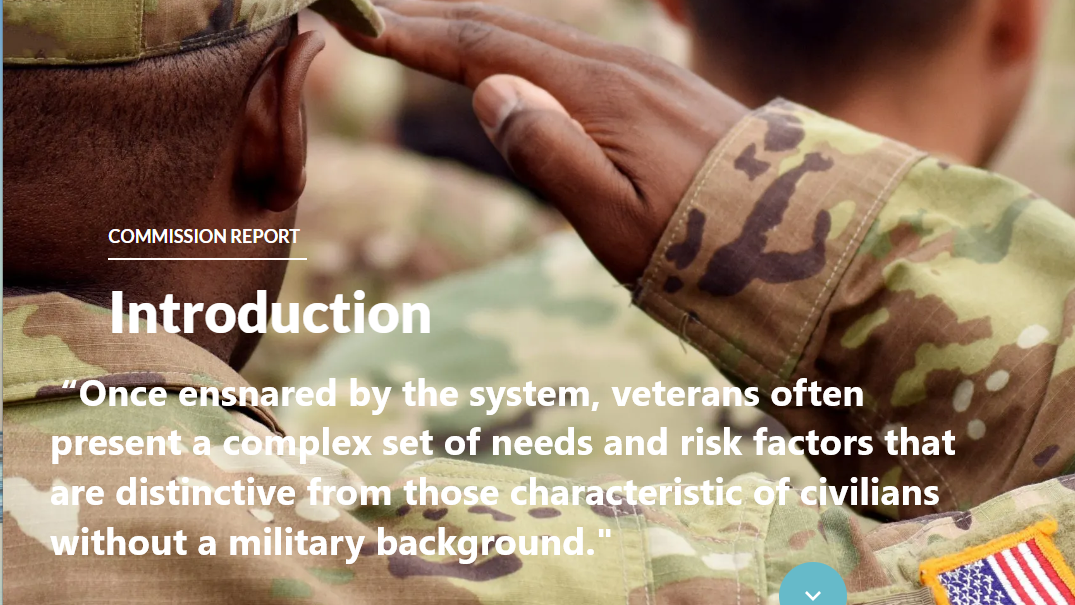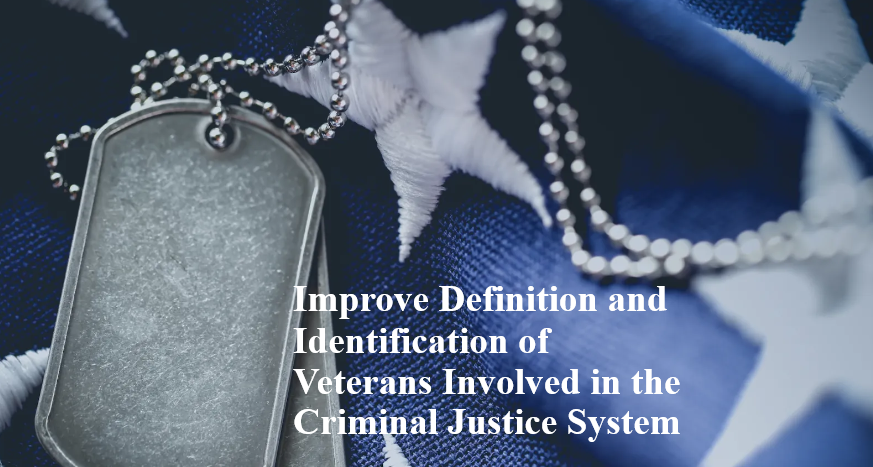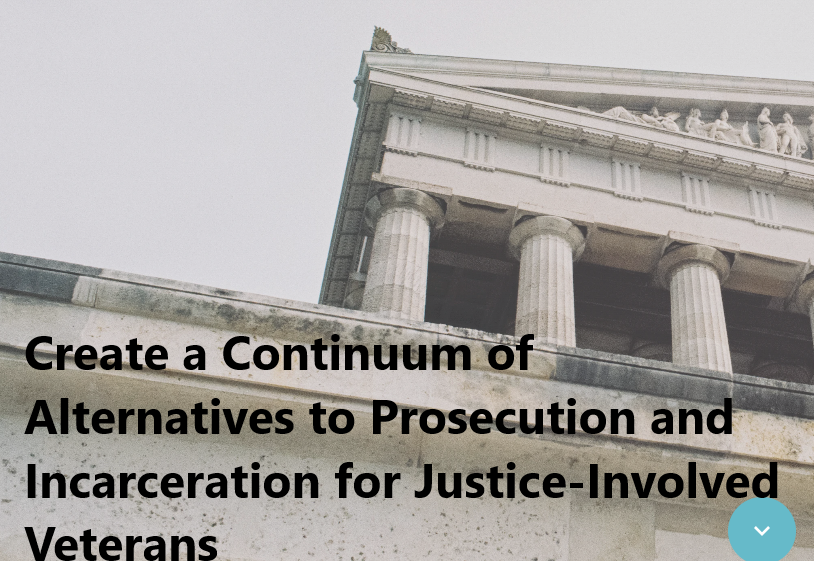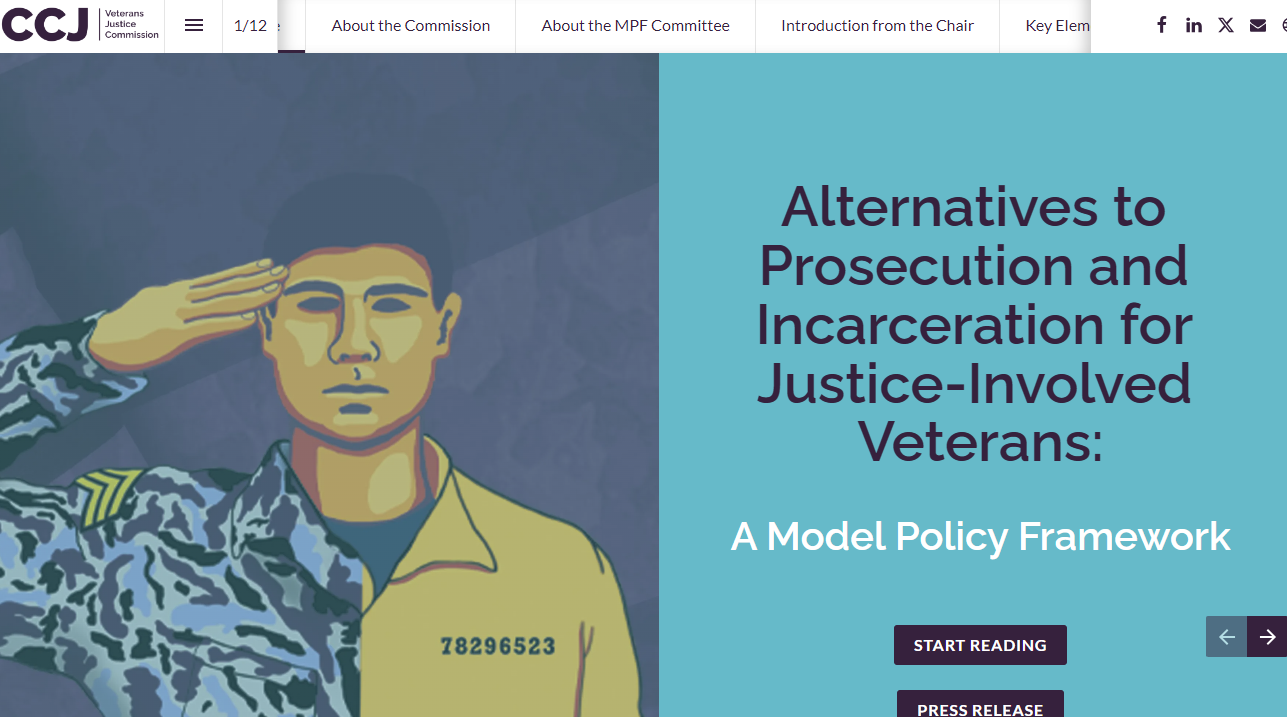U.S. Department of Veterans Affairs – Veterans Benefit Administration
Justice-Involved Veterans
SENTENCING LAW AND POLICY, September 6, 2023
The policy framework offers alternative sentencing for veterans, taking into account their service and potential impact on their criminal behavior. These options include pretrial supervision and probation, replacing imprisonment and criminal records. These evidence-based practices are implemented in problem-solving courts and community supervision. The Commission also encourages laws that allow veterans to apply for record expungement.

The American Legislative Exchange Council adopted the Veterans Justice Act as a model policy. State legislatures will receive an updated framework to address the issue. Recommendations were released in March, with more coming next year. The Commission includes military and criminal justice leaders and is dedicated to helping veterans transition smoothly to civilian life.

Improve Definition and Identification of Veterans Involved in the Criminal Justice System
“Studies show that when asked about their status by law enforcement, many former service members are hesitant to identify as veterans.”
Recommendation: Federal, state, and local criminal justice agencies and courts should improve processes for identifying veterans in the criminal justice system and adopt a uniform definition of “military veteran” for use in those processes.

Create a Continuum of Alternatives to Prosecution and Incarceration for Justice-Involved Veterans
“America, in turn, has a responsibility to manage all veterans in a fashion that honors their service and helps them address the multiple challenges that service can create.”
Twelve states have created post-conviction statutory schemes, separate from VTCs, that recognize veteran status as a mitigating factor in sentencing.

“The Commission finds that the lack of coordination between programs for justice-involved veterans results in the duplication of efforts, a lack of proper program evaluation, and an inability to disseminate best practices.”

Provides Unconditional Love Inside, along with skills to take with them on the outside.
Suicide Among Justice-Involved Veterans: Understanding Risk and Meeting Needs

The Council on Criminal Justice is a beacon of hope in a world that desperately needs solutions to our criminal justice problems. They are dedicated to advancing our understanding of the policy choices that impact our nation and building consensus on solutions that will enhance safety and justice for all. This independent and nonpartisan organization invites people to become members and contribute to its think tank, which serves as a center of gravity and an incubator of policy and leadership for the criminal justice field.
The Council is a catalyst for progress, using facts, evidence, and fundamental principles of justice to drive change. They believe a fair and effective criminal justice system is essential to democracy and a core measure of our nation’s well-being. With their tireless dedication to justice, the Council on Criminal Justice is leading the way toward a brighter future for all of us.
THE VETERANS JUSTICE ACT, 7/27/2023
This policy presents alternative sentencing choices for American veterans who are accused of certain crimes and acknowledges their contribution to the nation and the possibility that their criminal conduct may stem from their military service. These choices comprise employing pretrial supervision and probation instead of a criminal record or imprisonment and are based on proven techniques for efficient supervision and restoration.

